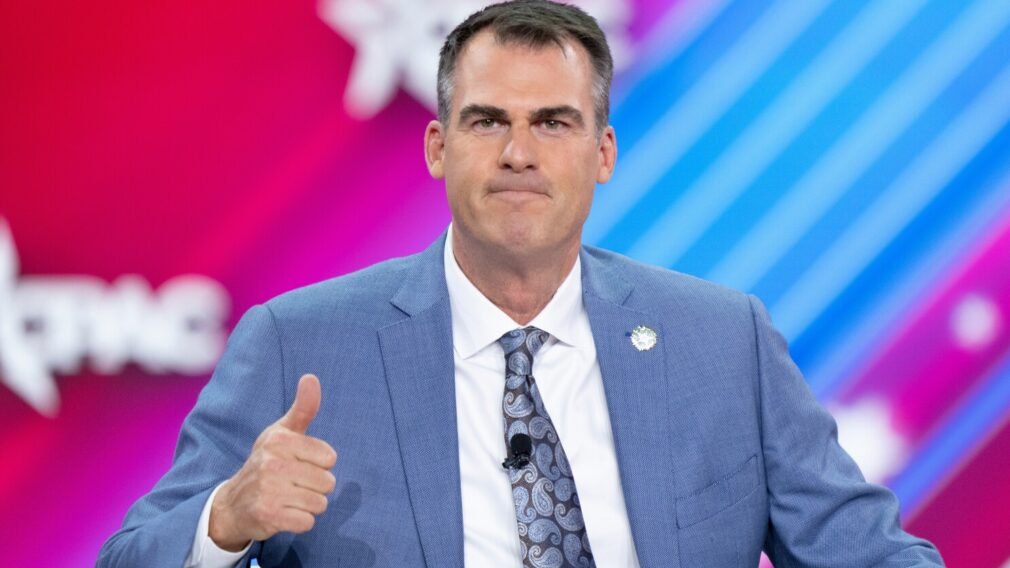Oklahoma’s Stitt Stands Firm Against Sports Betting
Governor Kevin Stitt remains unmoved by Oklahoma’s stalled sports betting push, vowing to veto any bills and accusing tribes of waiting out his term until 2027.

A Governor’s Hard Line
Oklahoma Governor Kevin Stitt doubled down on his opposition to sports betting legalization, shrugging off the legislature’s failure to pass bills in 2024.
“I think the big casinos, the big bosses, are waiting until I’m out of office,” Stitt said, eyeing his term’s end in 2027. He pledged to veto any sports betting legislation, citing his vision for a free-market model over tribal control.
Stitt has long pushed for a commercial-driven sports betting framework. In 2023, he proposed a plan allowing tribal casinos to host in-person betting but handing online wagering to operators like FanDuel or DraftKings.
“We analyzed the 30 or 40 states that have sports book and put a great plan together,” Stitt said, advocating a “free-market approach.”
Tribes and lawmakers, however, rejected the idea, favoring tribal-led models. Oklahoma’s gaming compacts, governed by the Indian Gaming Regulatory Act, grant tribes exclusivity over casino operations, generating $210 million in state fees in 2024, per the Oklahoma Indian Gaming Association (OIGA).
A History of Tribal Tensions
Stitt’s relations with tribes are, in a word, nonexistent. In 2020, he tried legalizing sports betting through compacts with the Comanche Nation and Otoe-Missouria Tribe, but other tribes cried foul, and the Oklahoma Supreme Court struck down the deals, ruling they needed legislative approval for Class III gaming expansions.
The move eroded decades of goodwill built by past governors, creating a “fractious dispute,” per Tribal Business News. Legislative leaders from Stitt’s own Republican Party threatened to bypass him in tribal talks, frustrated by the deadlock.
“All of those jobs in rural Oklahoma wouldn’t be there without gaming,” said Sac and Fox Nation Principal Chief Justin Wood, highlighting tribes’ economic clout.
Tribes’ Economic Power
Oklahoma’s tribes are economic heavyweights, running 143 casinos that supported 113,442 jobs and $15.6 billion in output in 2019, per OIGA data.
Gaming funds education (88% of exclusivity fees), healthcare, and infrastructure, saving the state millions in Medicaid costs. “Gaming has sailed far beyond revenue projections,” said Cherokee Nation Businesses Executive Chairman Bill John Baker, noting tribes outpaced state expectations.
With 33 of 38 tribes operating casinos under state compacts, their influence over gaming policy is ironclad. Stitt’s commercial model threatens this exclusivity, prompting tribes to dig in, betting on outlasting his tenure rather than compromising.
Legislative Efforts Stalled
Despite Stitt’s opposition, Representative Ken Luttrell, working with OIGA, introduced House Bills 1047 and 1101 in to legalize sports betting.
HB 1047 aimed to establish a tribal-led framework, while HB 1101 proposed a voter referendum if Stitt vetoed the plan, mirroring Oklahoma’s 2003 lottery vote.
Both bills gained traction in the House but died in the Senate, which declined to vote. “Hopes for sports betting legalization were sunk for another year,” reported The Oklahoman.
Recommended
